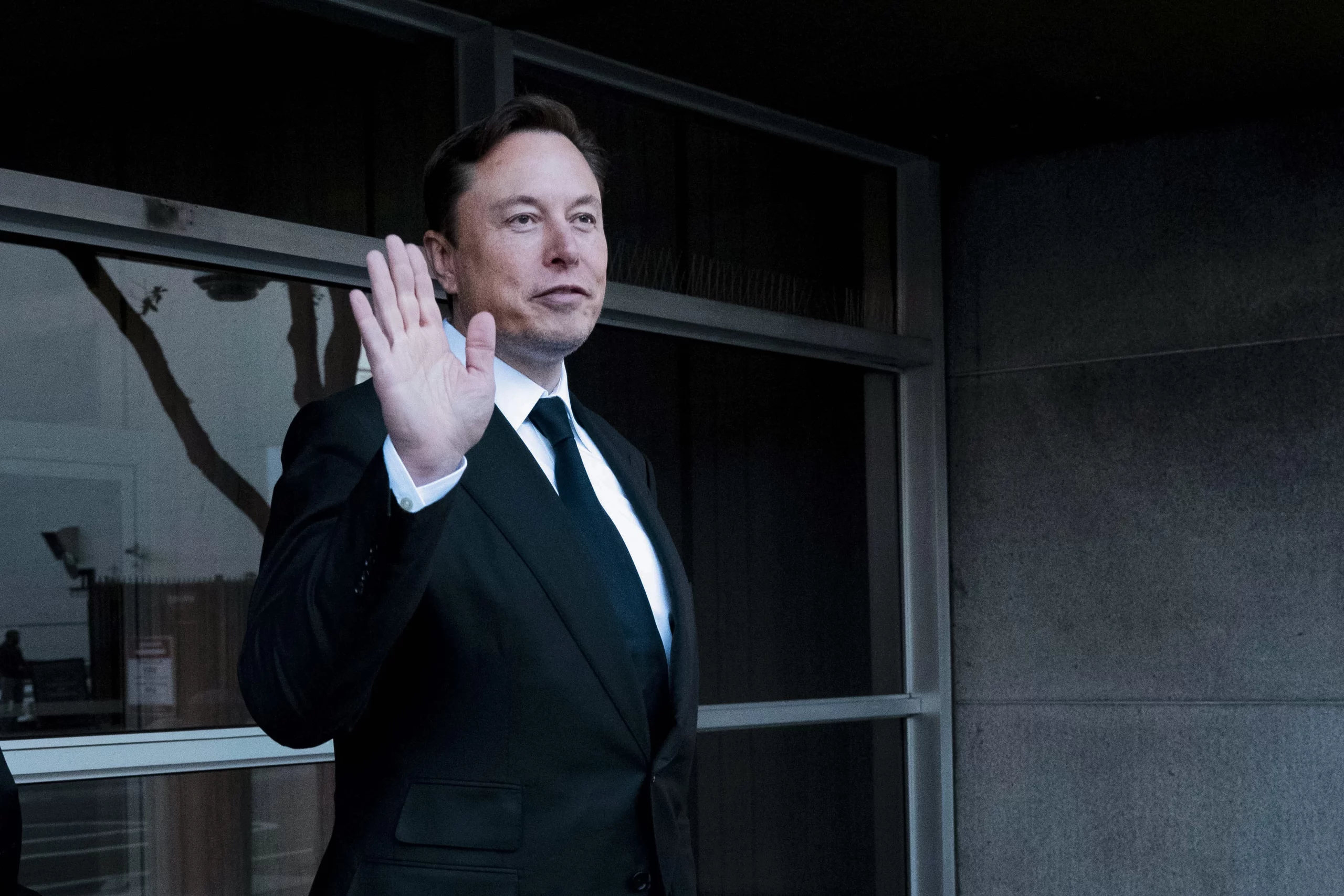Elon Musk has boasted (or possibly grumbled) on several occasions that he would pay $11 billion in federal taxes in 2021, the highest amount ever paid by any individual. But Tesla reportedly won’t contribute anything.
Even though the firm has announced its most profitable year ever, Tesla may not anticipate paying federal taxes anytime soon. Tesla reported a net profit of $5.5 billion and an adjusted profit of $7.6 billion in 2021.
But Tesla discloses that its US business lost $130 million in the previous year on a pre-tax basis in a footnote of its most recent annual financial filing with the Securities and Exchange Commission. Despite the fact that 45% of its income comes from US sales, it asserts that all of its pre-tax earnings, totaling more than $6 billion, originated from international activities.
Tesla claims that its overseas tax obligation was $839 million, whereas its state tax obligation was just $9 million. And it owed nothing in federal taxes. Martin Sullivan, the chief economist for Tax Analysts, a nonprofit tax publication and an authority on US corporation tax laws, stated it defied logic but did not violate the US tax legislation.
Moving Profits Overseas — on Paper

The $130 million loss on its US operations, according to Sullivan, is most likely the result of a US multinational corporation’s common practice: structuring its operations so that its overseas subsidiaries are the ones reporting income, leaving the US operation with little to no taxable income to report.
For instance, a business may transfer its intellectual property to one of those overseas organizations and charge its US division a fee to use it. Due to “costs” to the firm itself, the US corporation reports either a loss or very little income, while the overseas operation is quite successful.
“It’s an American multinational issue. It occurs frequently. Not doing it is practically malpractice, according to Sullivan.
According to a recent analysis from the US Department of the Treasury, seven small nations known as tax havens—Bermuda, the Cayman Islands, Ireland, Luxembourg, the Netherlands, Singapore, and Switzerland—receive 61% of the overseas profits made by US multinational corporations. Numerous political figures have committed to stopping the practice, and the Biden administration has also made the same commitment.
Sen. Elizabeth Warren, a vocal opponent of Musk, stated that “Tesla and other large corporations have long used scams and loopholes to help them get out of paying taxes. That has to stop.” Democrats are attempting to repeal Republican tax breaks for businesses that outsource their jobs and profits.
Congress Has Not yet Taken Any Action to Halt It, Though. However, Tesla’s financial report does not explicitly state what it did. For instance, it reports a US loss but doesn’t specify which nation or countries it generated its profit from. Additionally, Tesla declined to comment when asked about its application.
Tesla Doesn’t Expect to Pay Us Taxes Any Time Soon

Since the government has long provided Tesla with significant financial assistance for its electric vehicles, the firm doesn’t need to play a shell game by offshoring its earnings in order to avoid paying taxes. Instead, it might exploit past losses as a way to avoid paying any taxes on present revenue.
Once more, this is a standard procedure for businesses that experience a loss: losses lead to future tax relief. This strategy has been utilized by digital businesses that experience years of losses before turning a profit, like Amazon (AMZN). The same is true for old-line businesses with financial issues, including as all US airlines, which, although getting billions in federal assistance, recorded billions in losses during the epidemic and will likely not be required to pay taxes for years.
Similar to how Tesla’s US car industry rivals lost so much money in the first ten years of this century, General Motors and Chrysler need bailouts from the government. Despite such bailouts, neither business paid taxes for a while after turning a profit. “Net operating loss carry-forwards” are a significant and extremely valuable future tax advantage that results from past losses.
Before declaring net profitability in 2020, Tesla was in the red for more than a decade. In its early years, the expenditures of designing and manufacturing its automobiles were great than the revenue it could generate. Those were actual losses. It did so with the hope that as demand rose and prices fell, it would eventually turn a profit. That is precisely what took place.
However, Tesla was able to build up net operational loss carry-forwards that it may employ in the future by racking up billions of dollars in losses. Tesla said in its financial report this week that none of those prior losses were used to defer paying taxes on current profits. Additionally, it made an accounting move that shows it is uncertain as to whether it will ever need to utilize those prior losses to protect its US income.
Tesla anticipates yearly sales growth of 50% for the foreseeable future, which is fairly enthusiastic about its future. According to Sullivan, it is likely that it would not have taken the action of lowering the value of those prior losses in order to avoid paying future US taxes if it had thought that its pre-tax losses in its domestic businesses were just transitory.
Read More: The Role of User Experience Design in Creating More Intuitive and Enjoyable Gaming Interfaces
Is Tesla losing money at home?

Another reason Tesla could have declared a pre-tax loss on its US operations is one that is less of a tax-saving accounting scheme and more of a warning about the company’s future prospects. It’s possible that the company is still losing money on the automobiles it sells in the US and can only turn a profit by taking advantage of the cheaper expenses of a recently opened facility in Shanghai, China.
One of Tesla’s most vocal detractors and skeptics holds that view. Gordon Johnson of GLJ Research notes that until it began making vehicles in Shanghai in October 2019, Tesla was generally in the red. He thinks investors are giving Tesla too much credit for US earnings that aren’t actually there.
Regarding Tesla’s filing this week, he remarked, “I think it’s a massive deal.” They essentially said that they had no plans to use any of the net loss carryforwards. Therefore, they are losing money on their US activities. We’ve argued this point several times. Tesla is in the red elsewhere.
However, contrary to what its US tax returns claim, some experts who have looked at Tesla’s books assert that the company’s earnings, both domestically and abroad, are legitimate. If Johnson is mistaken, Tesla needs to be more open, according to Johnson. Both answers may be accurate up until they disclose information, he said.
Read More: Nick Carter Sued for Sexual Assault, Battery by Dream Singer Melissa Schuman
Musk’s rare big tax bill
NPR literally says Federal funding is *essential* on their website right now at https://t.co/QA8TUZxmNO
What have you got against the truth @NPR? pic.twitter.com/3W0X0MsZYW
— Elon Musk (@elonmusk) April 13, 2023
Musk has a history of paying little or no personal federal income taxes utilizing the US tax law. According to a ProPublica analysis, Musk and many other Americans near the top of the list of the richest individuals in the world did not pay any income tax in 2018.
In Musk’s instance, Tesla only pays him in the form of extremely expensive stock options, not a salary. Furthermore, he is exempt from paying taxes on such options under US tax law until he uses them to purchase shares of stock for a discount from their market value.
If he sells shares he already owns as a result of his prior investment in the firm, which he seldom does, he will also be responsible for paying taxes. But he also did that the previous year.
The majority of Musk’s stock options have not been exercised. However, he had stock options worth $22.9 million that were set to expire in August 2022, and he began using those options to purchase more shares in the latter part of last year. He paid a total of $142.6 million to buy shares that were worth $23.6 billion. This resulted in taxable income for 2021 of $23.5 billion, which would be taxed at a federal rate of around 41%.
A tiny portion of the extra shares that Musk already held were also sold; these transactions brought in a taxable $5.8 billion at a reduced capital gains rate. He stated that the combined effect of those stock trades was probably an $11 billion federal tax bill.
But unless Congress approves one of the many plans to tax the net worth of the nation’s wealthiest people, rather than simply their income, it may be the last time he pays a significant amount of federal tax for years to come. That has been suggested by a number of Democratic senators, including Ron Wyden, Elizabeth Warren, and Bernie Sanders, but so far it hasn’t come close to becoming law.
Naturally, Musk is against such initiatives and has made fun of all three senators on Twitter. Musk’s choices aren’t exhausted after the ones he used last year, which resulted in a significant tax bill. According to Tesla’s financial report this week, Musk now has 67.5 million options, an increase of 8.4 million.
None of those choices, however, expire until 2028. Therefore, unless he leaves the firm before then, it will probably be five years before he begins to execute those options. There is a significant likelihood that his tax bill and his major company’s tax bill will be equal for those five years if he is once again paying no federal taxes.
